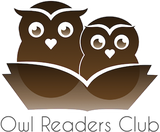
Chinese Dialects - Our disappearing culture heritage ...
Ho seh ah! Xin cek lai liao!
(Hokkien-English Translation: Awesome! Arrival of new books!)
I couldn’t keep my enthusiasm in check when I heard that Owl Readers Club was stocking up on local books, and by local books, I don’t mean the Sherlock Sam variant either. These books are really local.
“Wu niah bo?” I asked the founders of Owl Reader’s Club.
One of the founders replied in impeccable English. “For real. It’s confirmed. We’re going to have the My First Book series for Cantonese, Hainanese, Hakka, and Hokkien.”
“Made in Singapore dialect books? Zhun bo? Mai pian wa hor!”
He smiled and sipped his Teh C Kosong.
~
One simply cannot claim to be a “local boy” or “kampong girl” if one cannot pepper dialect into daily conversations. You can be in any part of the world and the one sure way you can recognize a fellow Singaporean is by the way they speak. Once upon a time, in 1981, then Prime Minister Lee Kwan Yew of Singapore, in a bid to unite the nation, abolished dialects from our school system, and for a long while (Chinese) dialect remained the domain of the pre-war babies and market place chatter. But that is slowly changing. Though dialect will never override Mandarin as the second language of choice, young Chinese Singaporeans see (Chinese) dialects as an important part of their heritage, and are taking steps to make sure they will not be lost.
Even celebrity singer-songwriter Kit Chan weighed in on the great dialect debate. Chan said, “Chinese dialects would encourage young Chinese Singaporeans to become interested in and more competent in Chinese as dialects enables Chinese to become a living language, and a part of our lives, not just a skill to be mastered to earn good grades or to make a living”.
So it would seem that by being competently conversant in (Chinese) dialect, I might actually be more competent in Chinese? The verdict is still out there on this one. (Chinese) Dialect, however, was a social tool for me to get through army with the fun crowd. Being able to speak and understand dialects helped me build bonds with the warrant officers –enchiks as we call them– and the local boys from the ‘hood. The Peranakan boy who could talk the talk gained immediate respect and that was immensely useful when I needed to lead the troops in the field.
“Mai hor lim pei su seh, hor!” was particularly my favorite line. It loosely translates to: “Don’t embarrass your father (me), yah.”
While my proficiency in Mandarin has not improved a slight, I can appreciate what Kit Chan was trying to point out when she said that language becomes more relevant when we use it for living instead of just scoring grades.
It’s not uncommon for us to find Indian and Malay uncles sitting at the coffeeshop bantering in dialect with their Chinese counterpart. This led me to conclude that Chinese dialects aren’t just a racial issue. It is a Singaporean Identity. So either you’re keen on preserving culture, winning brownie points with the grandparents, getting in on the colloquial speak, giving your child an edge in language, or just getting something for the coffee table, you should check out (Chinese) Dialects @ Owl Readers Club!
Zoi Geen for now!
(Cantonese-English Translation: Goodbye)
Written by Eugene Tay, founder of Brain & Butter and Monsters Under the Bed.
When Eugene was a young boy, he wanted to be an astronaut. When that didn't take off, he decided that he was going to be like Indiana Jones and explore the world as an archaeologist. Eventually, he figured out how he can do both. That's when he became a writer.
Co-Written by Grace Chai, mother of a newborn baby boy.
Grace is a new mom and currently undergoing intensive On-The-Job Training for her new role. Between pumping milk, changing diapers and taking selfies with her baby, Grace manages stress by writing about her motherhood experience for ParentTown.
